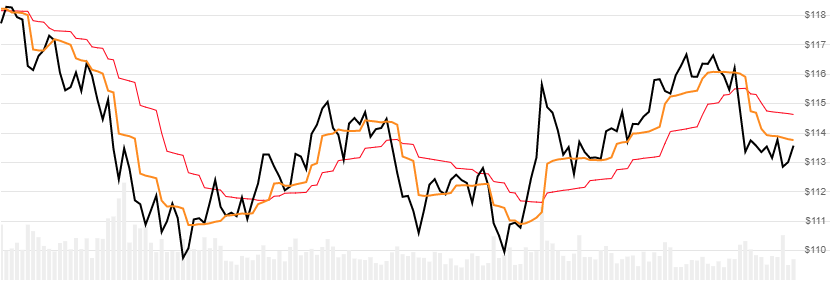MESA Adaptive Moving Average (MAMA)
get_mama(quotes, fast_limit=0.5, slow_limit=0.05)
Parameters
| name | type | notes |
|---|---|---|
quotes | Iterable[Quote] | Iterable of the Quote class or its sub-class. • See here for usage with pandas.DataFrame |
fast_limit | float, default 0.5 | Fast limit threshold. Must be greater than slowLimit and less than 1. |
slow_limit | float, default 0.05 | Slow limit threshold. Must be greater than 0. |
Historical quotes requirements
You must have at least 50 periods of quotes to cover the warmup periods.
quotes is an Iterable[Quote] collection of historical price quotes. It should have a consistent frequency (day, hour, minute, etc). See the Guide for more information.
Return
MAMAResults[MAMAResult]
- This method returns a time series of all available indicator values for the
quotesprovided. MAMAResultsis just a list ofMAMAResult.- It always returns the same number of elements as there are in the historical quotes.
- It does not return a single incremental indicator value.
- The first
5periods will haveNonevalues forMamasince there’s not enough data to calculate.
⚞ Convergence warning: The first
50periods will have decreasing magnitude, convergence-related precision errors that can be as high as ~5% deviation in indicator values for earlier periods.
MAMAResult
| name | type | notes |
|---|---|---|
date | datetime | Date |
mama | float, Optional | MESA adaptive moving average (MAMA) |
fama | float, Optional | Following adaptive moving average (FAMA) |
Utilities
See Utilities and Helpers for more information.
Example
from stock_indicators import indicators
# This method is NOT a part of the library.
quotes = get_historical_quotes("SPY")
# Calculate Mama(0.5,0.05)
results = indicators.get_mama(quotes, 0.5,0.05)
About MESA Adaptive Moving Average (MAMA)
Created by John Ehlers, the MAMA indicator is a 5-period adaptive moving average of high/low price. [Discuss] 💬
